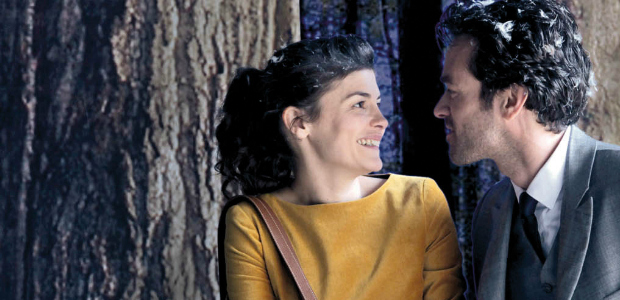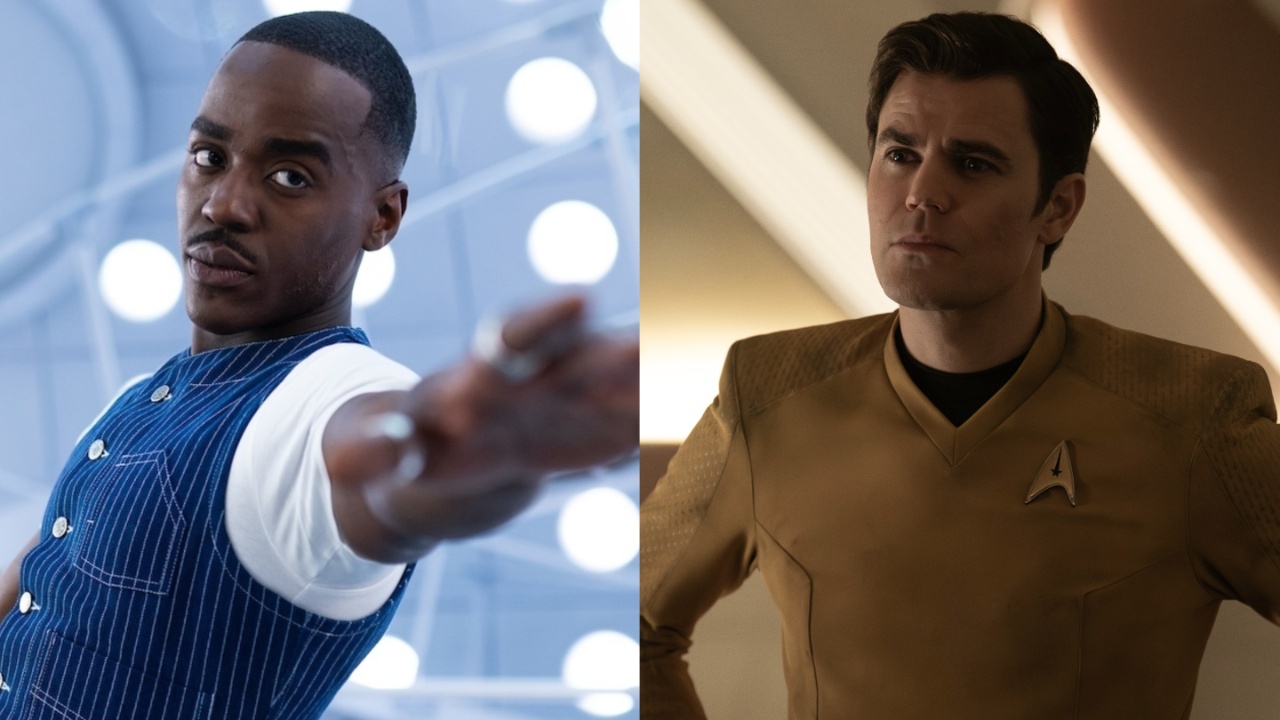Michel Gondry is a filmmaker with nothing to prove in the field of abstract romance. In 2004, he collaborated with Charlie Kaufman to make Eternal Sunshine of the Spotless Mind - one of the most honest, emotional and inventive romances ever put to film. This set a high bar for the director’s return to the genre with his latest movie, Mood Indigo, but once again he has proven to possess a truly genuine understanding of the joy and pain that comes with love, as well as the personal sacrifice that comes with being part of a larger whole.
Based on the novel by Boris Vian and filtered through the vision of a genuine auteur writer/director, Mood Indigo is set in a fantastical world – practically a live-action cartoon – where we meet Colin (Romain Duris), an affluent young man living in Paris with his lawyer/mentor/cook Nicolas (Omar Sy). While Colin is happy and doesn’t have to earn a living due to his wealth, he is desperate to find someone to share his life – motivated by the fact that his best friend, Chick (Gad Elmaleh), has fallen for Nicolas’ niece, Alise (Aissa Maiga).
Colin’s search comes to a quick end when he meets Chloe (Audrey Tautou) at a party, and the two fall madly in love. Unfortunately, even this bright and cartoony world isn’t free from the darker side of life, and Colin and Chloe suddenly find themselves facing tremendous hardship and having their love challenged.
While the plot of Mood Indigo is quite a good deal simpler than Eternal Sunshine of the Spotless Mind - stripping away the more science-fiction elements for a more straight forward love story – it’s Gondry’s unique vision that makes it pop like no other filmmaker could. The world in the movie is far more fantastical than our own, and the big, bold and beautiful first half of the film will widen your eyes and gape your jaw. Gondry uses a spectacular mix live-action and stop-motion to bring Vian’s book to life with all sorts of bizarre elements and inventions, from the doorbell/egg timer that crawls around the house and can only be turned off with a good smashing; to the chef in the television who offers Nicolas cooking advice and can even reach through the screen to hand him ingredients. These wondrous elements aren’t limited to the set design either, as the characters themselves are able to twist, contort, dance and change in all kinds of impossible ways that perfectly fit the environment they’re living in.
With tonal changes in the story come dark alterations in the aesthetic, however, and while there is a sadness in seeing the brighter, more fantastical elements go, there’s compensation that comes with watching a master filmmaker at work and in complete control of the story he is telling. As though the world feeds off of the positive energy put out by Colin and Chloe, as the couple encounters greater and greater adversity, the life and color of the environment begins to dim and fade metaphorically. Wholly depressing as it is, that doesn’t stop it from still being beautiful.
More than just a work of visual artistic expression, though, Mood Indigo is primarily about the sacrifices required to make love work in the real world. Happy as Colin is at the beginning of the film, he is willing to give up absolutely everything in the name of his passion for Chloe, and it’s emotion that’s palpable through the screen – and further driven home in the contrasting relationship between Chick and Alise, which is damaged by Chick’s complete obsession with the author Jean-Sol Partre (see if you can’t figure out that scrambled existential reference).
Perhaps it comes as an advantage being French, but Michel Gondry is one of only a very small number of modern filmmakers who have the understanding, intelligence and talent to take an abstraction as strange, demented and beautiful as love, and portray it cinematically with real honesty and emotionality. While not on par with Eternal Sunshine of the Spotless Mind, Mood Indigo is an auteur’s work made in the artist’s strongest medium, and the result is a remarkable piece of art.
Your Daily Blend of Entertainment News

Eric Eisenberg is the Assistant Managing Editor at CinemaBlend. After graduating Boston University and earning a bachelor’s degree in journalism, he took a part-time job as a staff writer for CinemaBlend, and after six months was offered the opportunity to move to Los Angeles and take on a newly created West Coast Editor position. Over a decade later, he's continuing to advance his interests and expertise. In addition to conducting filmmaker interviews and contributing to the news and feature content of the site, Eric also oversees the Movie Reviews section, writes the the weekend box office report (published Sundays), and is the site's resident Stephen King expert. He has two King-related columns.

